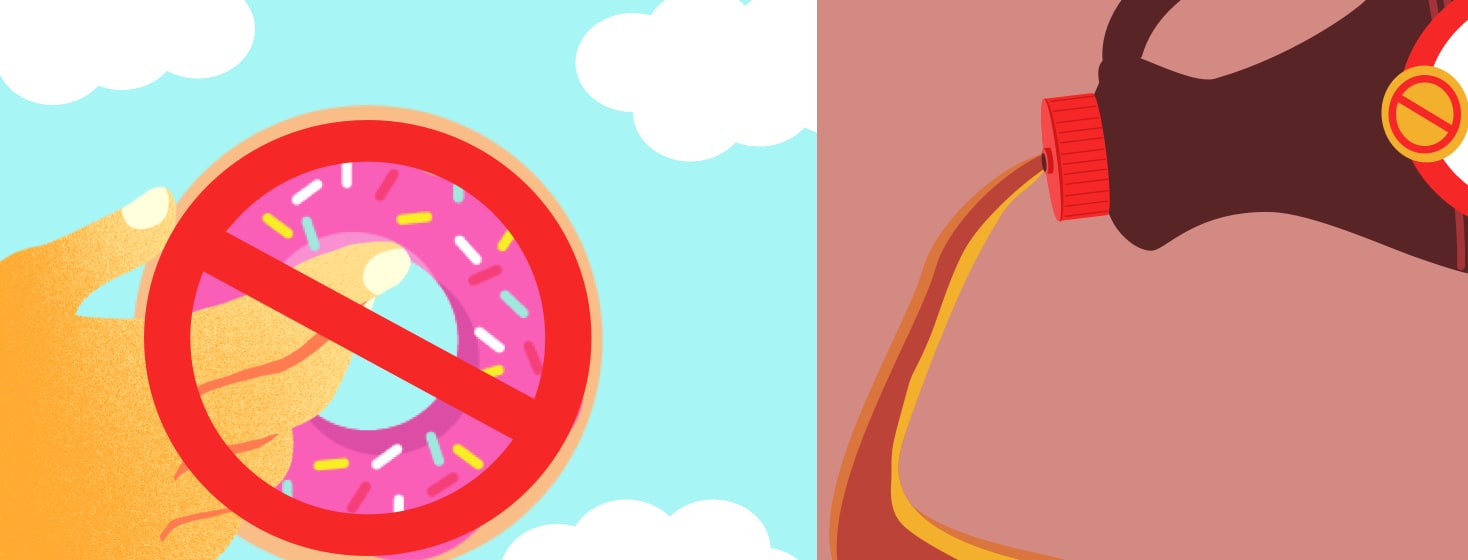Fat is Not a Personality
I am a fat woman, a term I now use without judgment. I am also Black, and I am not a stereotype. I am not the jolly fat woman, the lazy Homer, or the matronly Mammy from Gone With the Wind. I am me, an individual with my own personality, strengths, weaknesses, and attractive qualities. I am miscategorized.
Unfortunately, overweight individuals are often reduced to stereotypes. It's as if I am not my own person. I am a representative of a personality trait. I am the person who is easy to degrade because I have nothing to offer. If you are a Black woman and fat, get ready for the world to expect your graciousness or subservience.
Ho ho ho
One day, a co-worker was in my office. We were laughing when she suddenly said how I was always a happy person and so jolly. I was taken aback. It was like a punch to the gut, but I said nothing. The conversation ended real quick. I did email her later about it, and she apologized. For me, this incident is a perfect example of the assumption that fat people are always jolly.
This stereotype has been perpetuated by characters like Santa Claus. Always smiling and jokey. I do come off as super enthusiastic, but, my moods are as varied as anyone else’s. I have my good days and bad days, my moments of joy and sadness, my periods of activity and rest. The whole contradictions. My size does not dictate my attitude, in general or specific.
Stupid slug
The worst stereotype I have encountered is that fat people are lazy, stupid, slovenly, and gluttonous. Despite body positivity efforts, it persists. I believe this stereotype is embodied by the cartoon character Homer Simpson. He is often depicted lounging on the couch, a donut in one hand and a remote control in the other. He drools at the sight of food. He eats just to eat. This portrayal is not just inaccurate; it is insulting. To me, it suggests that fat people lack ambition, intelligence, cleanliness, and self-control.
All of the fat people I have known and worked with is a testament to the contrary. They hold steady jobs, are well-educated, maintain a clean living environment, and do not crazily overindulge in food or drink. None of us are Homer Simpson.
The people’s bosom
As a Black fat woman, I also have to contend with the truly annoying Mammy stereotype that is rooted in misogynoir. This particular characterization, depicted through the enslaved character of Mammy from Gone With the Wind, portrays Black women as goofily ignorant and totally subservient, existing only to serve. She loyally attends to Scarlett O’Hara and bugs out her eyes at the right moment. An Oscar win for the actor Hattie McDaniel does nothing to change that dynamic for me. It is etched in cinematic history.1,2
Mammy on the kitchen table was Aunt Jemima. Her round, brown shiny happy face greeted families at the breakfast table. It was the mark of good old-fashioned pancakes and syrup. A mark because of the Mammy stereotype. Her hefty girth ensured that she knew how to cook and serve as was expected of her "kind."2
These long-standing portrayals have created awkward situations for me in the past. When people expect me to be the nurturing, motherly figure to all and sundry, they are often surprised. I am not a woman ready to grandmother strangers with open arms no matter how much I like children. I am a woman who values her personal space and bodily autonomy. My bosom is not a safe space.
Hefty weight around the neck
Stereotypes of fat people are harmful. They deprive us of our individuality and humanity. They reduce us to caricatures, ignoring the complexity and diversity of our experiences. These stereotypes have resulted in several uncomfortable and hurtful incidents in my life. I have been mocked, ignored, and discriminated against because of my size. I refuse to be defined by others expectations.
It has been a long time coming that we challenge these stereotypes. Obese people are individuals with their own unique personalities, abilities, and experiences. We are not jolly, lazy, or subservient. We are human beings deserving of respect and understanding. And most importantly, we are not defined by our size. We are defined by our character, our actions, and our contributions to the world.

Join the conversation